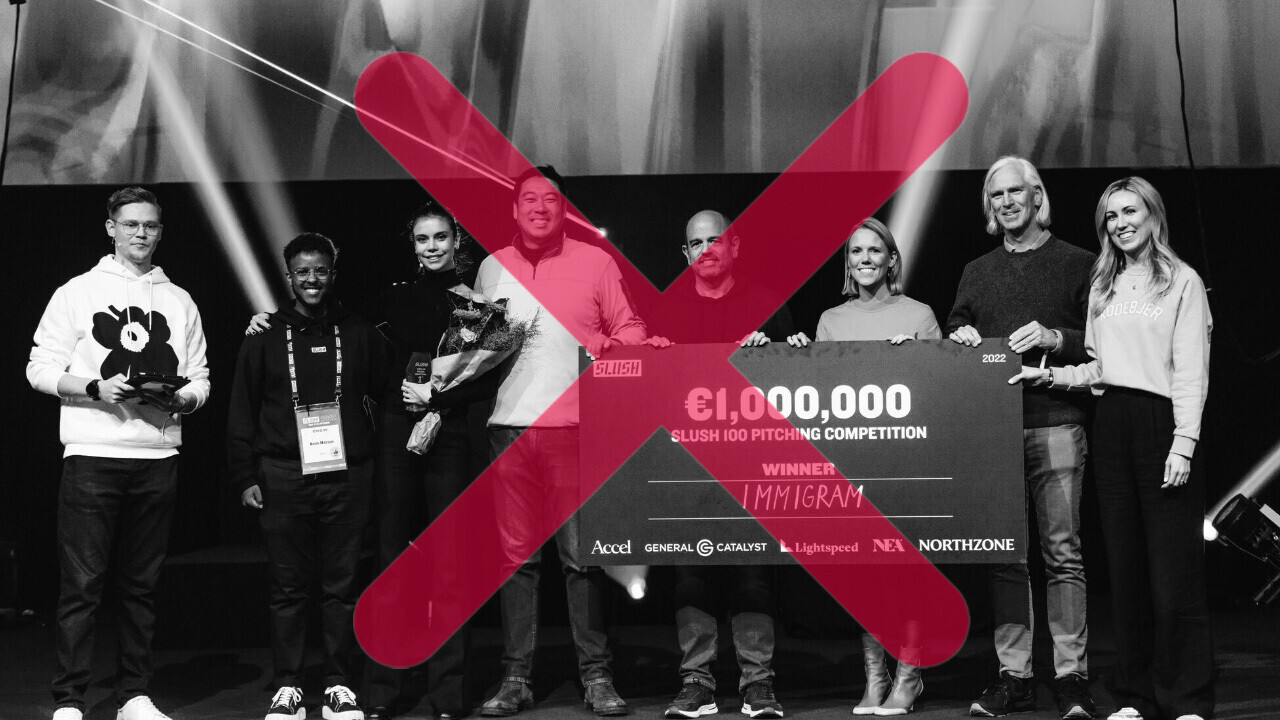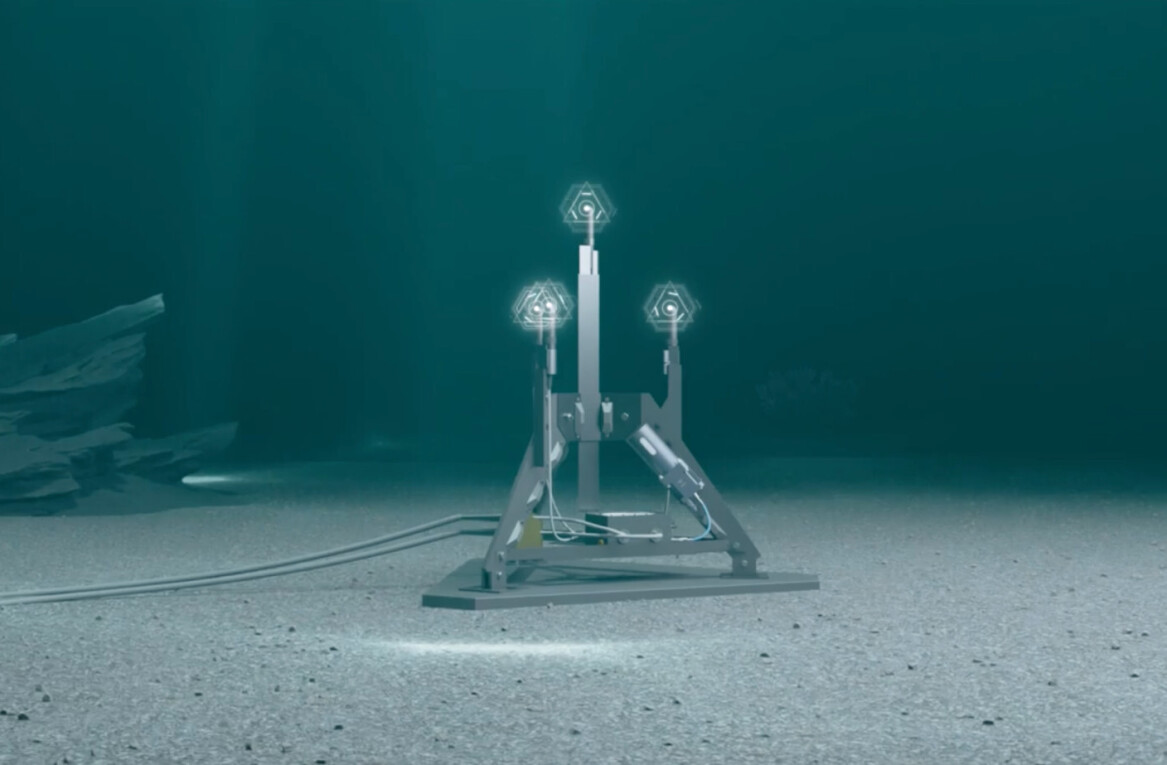
Usually, the winners of a pitching competition are bathed with accolades, media attention, and applause. After it’s done and dusted, all they have to think about is what to spend that sweet, sweet prize money on.
But, this year, for one startup, things haven’t gone to plan. Immigram — the winner of the Slush 100 startup competition — is mired in controversy due to its links with the Russian tech scene. Not only are the founders Russian passport holders, but it’s also recruiting tech workers to move to Moscow.
This left many wondering why the judging panel decided to invest in a company with such strong links to the Russian business scene. In response to pressure, Slush rescinded the award.
A statement from Slush
Slush released a statement in which it revoked Immigram’s win and requested that the funds pull their potential investment from the startup. But, yes, VCs may still decide to invest in Immigram. At the time of writing, investors on the judging panel have been silent.
— Slush (@SlushHQ) November 21, 2022
Immigram also confirmed on LinkedIn that it is opting out of the Slush competition.“We will continue supporting Ukraine and building a company for millions of talented people who want to move internationally,” the Russian-born company noted in the post.
But let’s take a step back.
Who is Immigram?
Immigram is a B2B SaaS platform enabling employers to attract and retain international talent by guiding them through the myriad of paperwork to enter the different employment markets. 10% of their clients have been Russians. You can check out their winning pitch here.
Judges awarded them a €1m investment from five top VCs: Accel, General Catalyst, Lightspeed Venture Partners, NEA and Northzone.
What has been the response to the victory?
Unsurprisingly, there was a big outcry to the win over the last few days, with many questioning the decision. Investigations into the company by AIN.Capital found that the startup is hiring for roles based in Moscow: “The same positions can be found on the startup’s career page, and they are marked as remote.”

Twitter has, unsurprisingly, been in uproar:
So while Ukrainian IT specialists are dying in trenches or struggling to work during blackout you are giving money to a startupwhich help russian its who’ve helped this regime while it was comfortable for them and fleeing when it’s not?
Is this some kind of bad joke?— Тривожна картопелька (@nimvalar) November 19, 2022
i have a company ‘tickets_for goebbels_to_argentina’.
can i have my one million dollars?— Tuany Muonteana (@hyperOff) November 19, 2022
Oh Slush, you lose your brand image in one shot…
— Dyno Musk (Né Elon) (@offlinethyrano) November 19, 2022
Yaroslav Krempovych, Senior Associate at Movens Capital, openly called Immigram out on LinkedIn, noting the contrast between Ukrainian startup founders fighting and dying on the frontlines “for the lives of their families and loved ones and their country’s freedom” while “others seek to assist Russians to escape the repercussions of their acts and inactions…”
Today, he shared that one of their clients was proudly pro-Putin in public forums. Should a company be held accountable for the views of its clients when it puts them forward as talent?

Uncomfortable conversations are necessary
There’s a lot you could say about this situation. Since the controversy, Anastasia Mirolyubova, CEO and Co-Founder of Immigram, shared on LinkedIn that she left Russia in 2016 “partially for political reasons.” According to her, this followed the repression and detainment of close friends by the government. She claims she has “never lived [in Russia] since, neither conducted business or paid taxes [there],” despite proof the company is hiring for workers to operate in Russia.
In response to the controversy, she said that, “Yesterday, I started getting death threats and wishes for rightfully winning a startup competition with the wrong colour passport. That is very wrong.”
This is a situation where a lot of people are in the wrong.
Money over everything
In many ways, we’ve found ourselves in a common capitalist pitfall: cash won over ethics. Immigram came top because the uncomfortable truth is that investors are only involved because they want to make money.
Honestly, the fact that Immigram is supporting the Russian tech and startup scene means it should never have been able to enter Slush’s competition in the first place.
And let’s face it: the company’s product is not exactly humanitarian aid. Instead, it fast-tracks the bureaucracy of those eligible for a global talent visa in academia and research, arts and culture, or digital technology. Only a small percentage of the population has this kind of education, talent, or privilege — and the majority of them are white men.
Yes, there is a massive grey area here. Should we hold citizens accountable for the actions of their governments? Is — as TechCrunch pointed out in the past — hiring workers from Russia actually damaging the Kremlin? Should funds invest in countries engaged in warfare?
These are all vital topics we need to discuss, but the key fact is, in such troubling times, more due diligence needs to be taken in startup competitions. The selection criteria and what constitutes links to a power like Russia are of the utmost importance. And, in that, Slush failed. Let’s hope that the startup world takes note and stops travesties like this from happening again.
Get the TNW newsletter
Get the most important tech news in your inbox each week.




